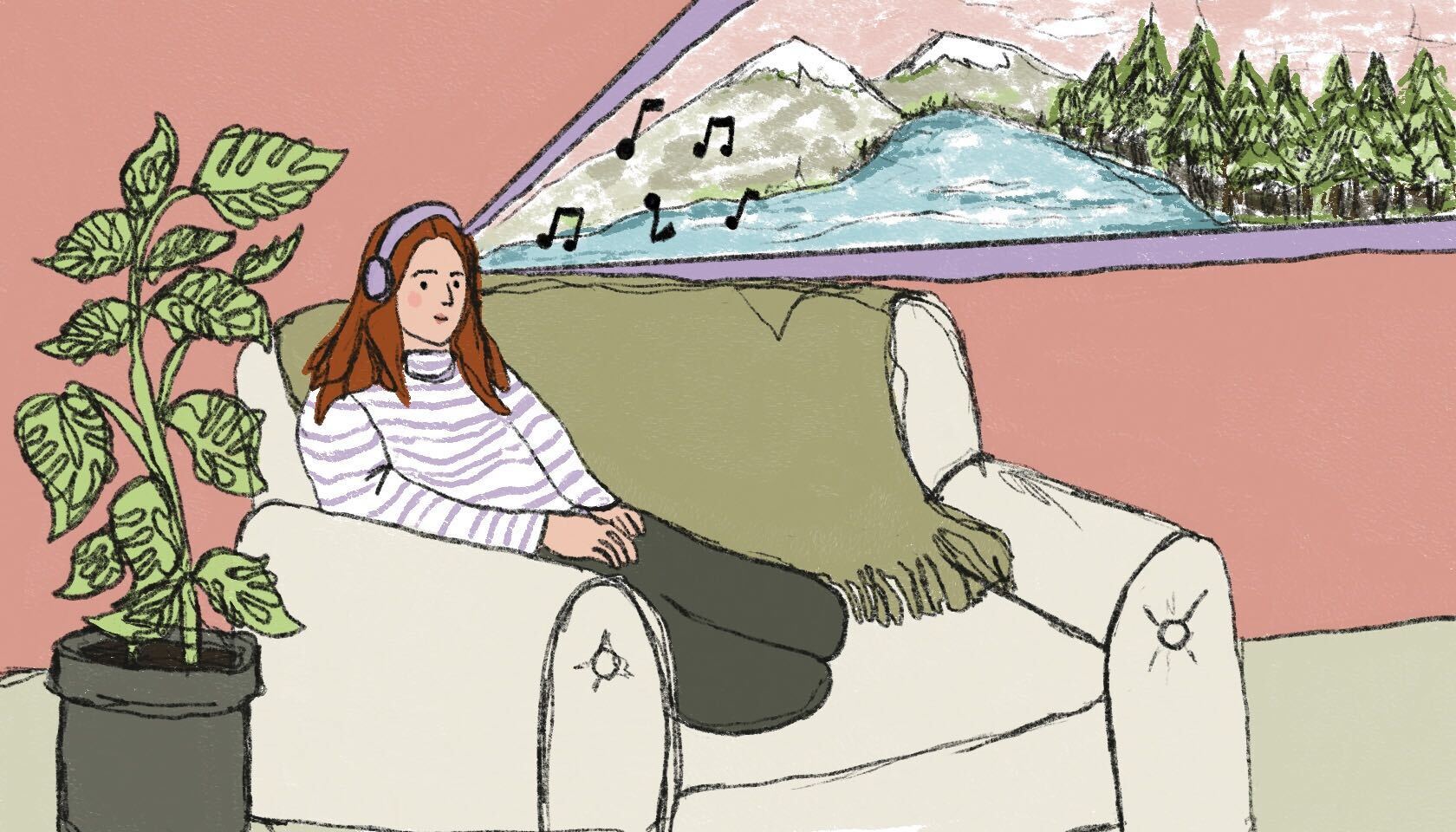Soundscapes?
What are they and how can they transport you?

The word Soundscape comes from sound and landscape. The word was first used by composer R. Murray Schafer to identify sounds that "describe a place, a sonic identity, a sonic memory, but always a sound that is pertinent to a place". In relation to mindfulness we can use sounds that are familiar or sentimental to relax us and inspire our minds to go to another place. There are so many distractions in the world now due to social media and many streaming tv and film sites that sometimes our eyes just need a rest from bright phone, tv and computer screens.
How to find your Soundscape style
It is hard to know what sound you find relaxing until you start listening to different types. You might find that environmental sounds such as rain pouring, waves crashing or a babbling brook send you into a state of calm. Or perhaps ambient and digitally produced music are better suited for your ears and mind. Below we have curated a variety of sounds for you to try and find which noises you have a connection to. Once you do, sit back, put your headphones on, and relax.
Wash your worries away with the rain
The sound of rain meets many needs. It is meditative, helping you to concentrate and/or sleep. Rain also provides relaxation and calm, healing, comfort, and revitalization.
Reach new levels with binaural sounds
Binaural beats aren’t a music genre. They are an auditory phenomenon created by your brain in response to hearing specific tones in each ear. Early research of the experimental treatment indicates that listening to binaural beats can reduce feelings of anxiety and improve your ability to fall asleep.
Take yourself to beach
Ocean sounds are the antithesis to the startling noises that trigger our threat responses. The slow ebbing and flowing of sea sounds are a naturally calming veil of noise that is soothing to the brain. Close your eyes and be taken to the seaside of your dreams, knocking away any of those holiday blues in sight.